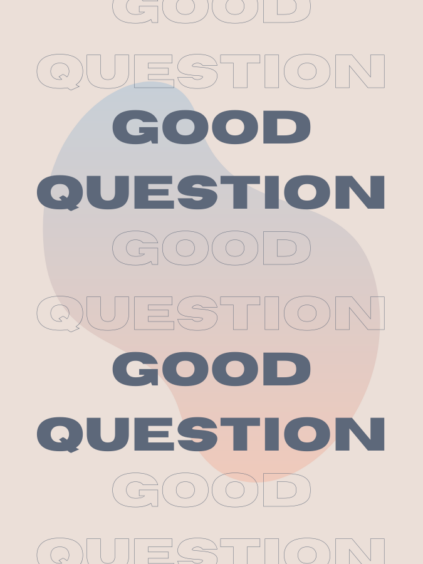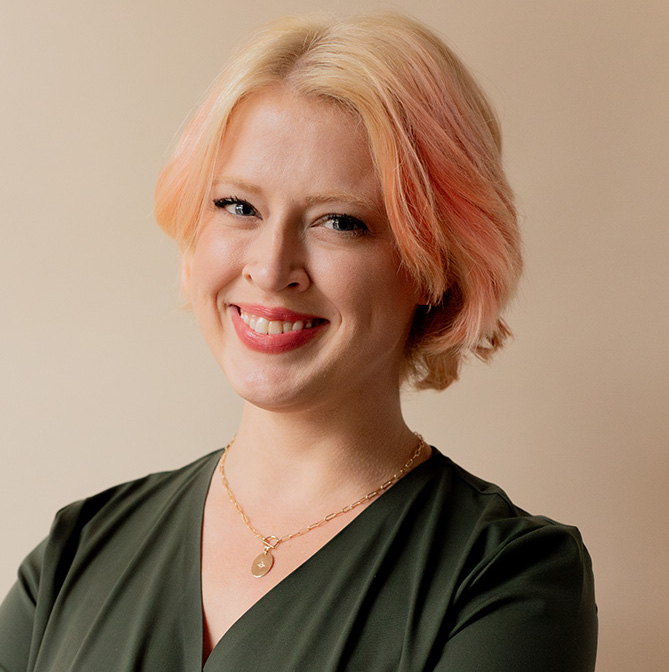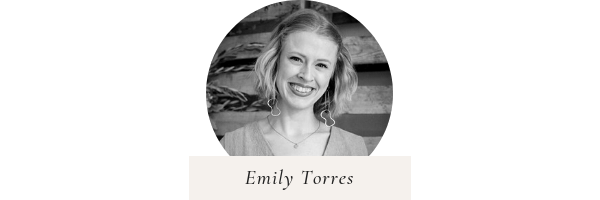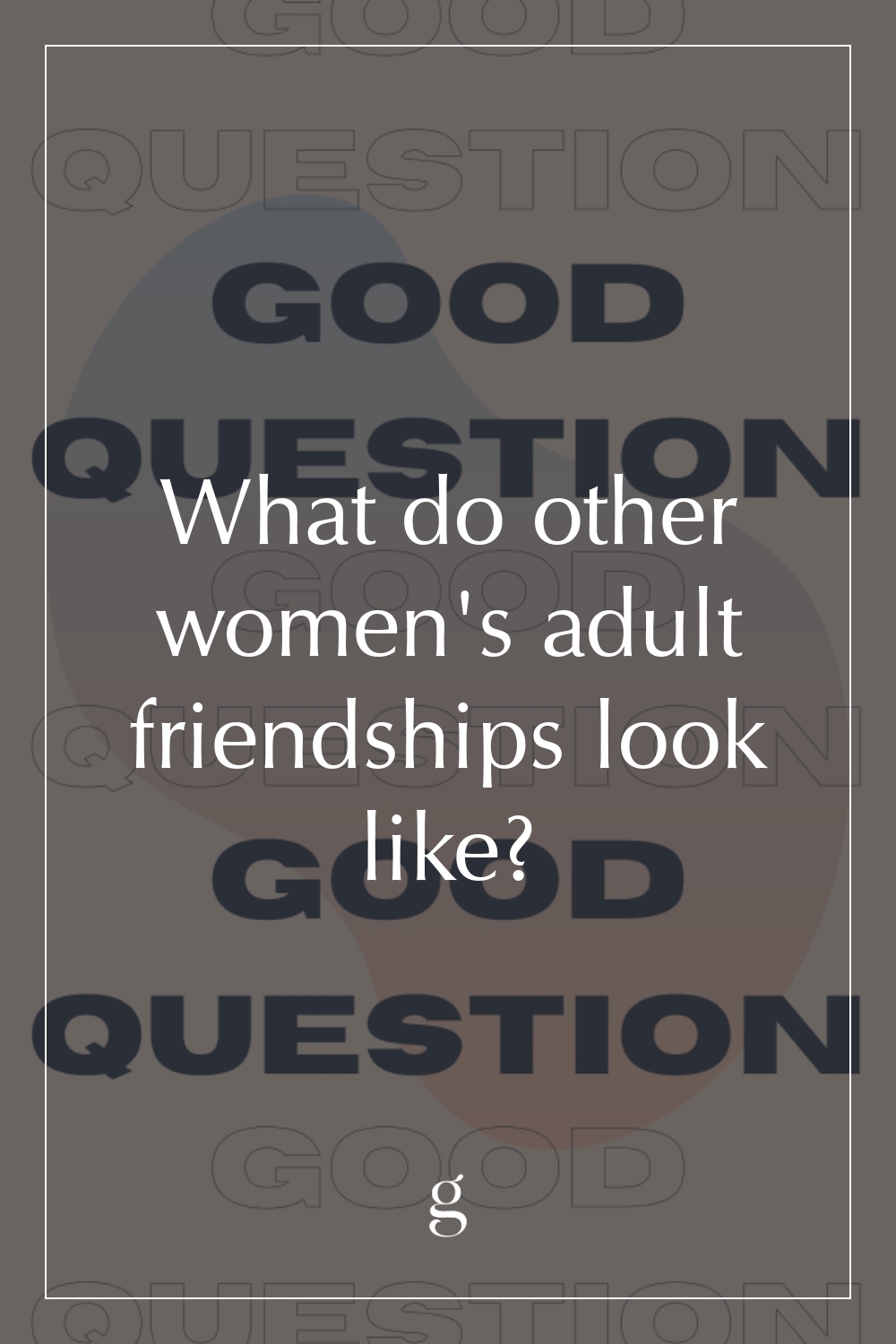
What do other women’s adult friendships look like?
I’m very curious about what other women’s friendships look like. What is a healthy adult friendship between women? How often do BFFs connect, chat, text, make plans together? How do they navigate life milestones? I haven’t [had]/don’t have a mother, an aunt, a grandmother, or any other female figure in my life who I’ve been able to turn to. That leaves me feeling uncertain and without personal examples and experiences in this area of my life.
This is a great question! And one that I feel doesn’t get enough attention, especially as we get older and navigate meeting new people and continuing (or not continuing) years-long friendships. It seems like it’s assumed that everyone inherently just “gets” how to maintain friendships, but it’s a bit more complicated than that.
“Most of us find ourselves relying on the people with whom we can be most vulnerable.”
The Good Trade team recently discussed how our friendships have been changing as the safer-at-home instructions have been in place and I found it enlightening (and reassuring). Most of us find ourselves relying on the people with whom we can be most vulnerable—and with whom we already have an understanding of what long-distance looks like. Making the leap from in-person hangouts to scheduled phone calls and video chats is not always easy for casual friendships.
But you asked for specifics! Here’s a look at my friendship situation, I hope it helps 🙂
First, I’ll start by admitting that I don’t have very many friends—and I don’t have sisters either. A small circle of friends is something I used to be very embarrassed about, but it has suited me just fine as I’ve gotten older. I think of the friendships I do have as darts on a dartboard: some of them meet me closer to home than others, and they’re always changing. Sometimes a relationship misses the target altogether and gets lost for years, until we find each other again and pick up where we left off. Each one I love and treasure individually wherever we might be at friendship-wise.
“We encourage each other to reach out more directly during difficult times.”
I text with my closest friends at least once every week—maybe two weeks. These are the people who could stop by my apartment, unannounced, and I would not be embarrassed to invite them into an unkempt home. We’re all busy and have partners that we rely on for day-to-day emotional support, although I’ve had many distinct conversations where we encourage each other to reach out more directly during difficult times. (There’s nothing as heartbreaking as finding out after the fact that we could have used each other’s support.)
The phone call schedule is a bit different; it varies depending on our seasons of life but ranges from twice a month to a few times a year. But with, say, four friends on this schedule, I still end up being quite social.
In-person is a little more tricky. I moved to Los Angeles over five years ago and am only now finding people that feel like home to me. I’ve found the greatest community in groups of people led by good organizers; I am not the one to plan a thoughtful gathering, so I’ve fostered good relationships with other kind and wonderful people who are. These group settings mean that I can share creative energy and enthusiasm with others, without having to be in a one-on-one setting and open my heart and soul right away with someone I’m still getting to know. But outside of a pandemic, these larger gatherings happen around once a month.
Navigating life milestones means understanding each other’s love languages and current capacity. My friends are all better gifters than I am (they’ll give me a life-changing gift and I’m like, “Here’s a notebook, I guess?”). I am working on being better, but I do know my strengths lie more in listening and truly, truly hearing them. When I can’t give gifts, I celebrate milestones with affirmations, words of support, and remind my friends about all the self-trust and hard work it took to achieve those dreams. I center them and recognize them the best way I can.
Finally, to your question about what a healthy friendship looks like. This is the biggest question of all, and I believe it requires more from you than it requires from others. You set your own expectations in friendship through words and actions. So, what is it that you most want from others, and what do you most want to give? Knowing your own love languages, again, is a great way to explore this. Don’t be shy to ask existing friends if they feel supported by you, either. Some of my strongest friendships have risen out of direct feedback to each other.
“You set your own expectations. So, what is it that you most want from others, and what do you most want to give?”
Friendships should not leave you consistently depleted, and they should not ask you to pretend you’re someone else. Relationships that do those things are only companionship—which is helpful when you’re going through a season of loneliness but ultimately won’t fill your heart in the same way. Some companions do transition into friends, but I have also clung to companions much longer than I should have, to my own detriment. Protect your heart, and encourage others to do the same.
And finally, something that I felt was revolutionary in my own friendships is to unabashedly tell my friends I love them. It felt strange at first, but it soon became normal and more frequent to express how we treasure each other. The first “hey, I love you by the way” feels stilted, but once it’s out in the open, it comes more easily.
The only way your friendships have to look is the way that supports you and connects you with kindred spirits to support in return. And I sincerely wish that for you, my friend. 💛
“The only way your friendships have to look is the way that supports you and connects you with kindred spirits.”
Read more Good Questions here. Have something on your mind? Click the button below 👇 ✨
RELATED READING
Emily Torres is the Managing Editor at The Good Trade. She’s a Los Angeles transplant who was born and raised in Indiana, where she studied Creative Writing and Business at Indiana University. You can usually find her reading or writing, caring for her rabbits, or practicing at the yoga studio.


